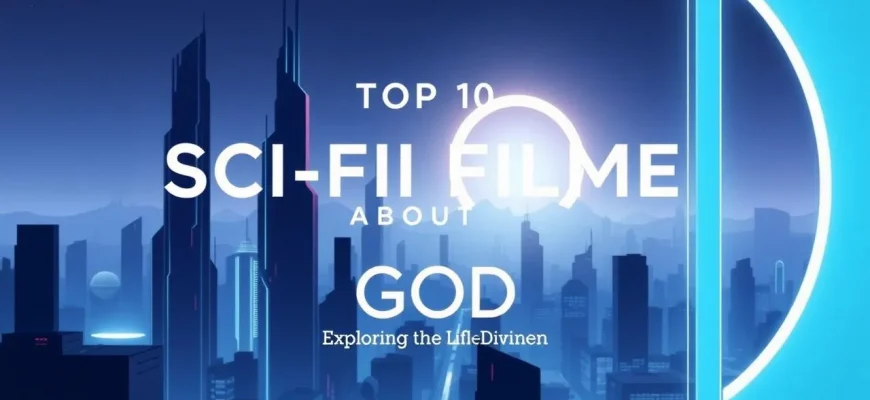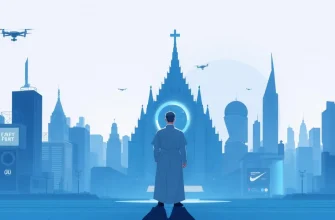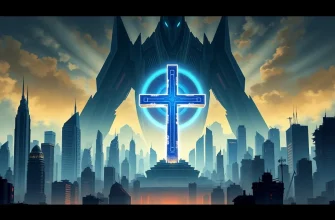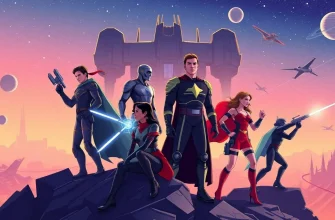Science fiction has always been a genre that pushes the boundaries of imagination, often exploring themes that touch on the very essence of existence, including the concept of God. This curated list of 10 films delves into the intersection of divinity and futuristic settings, offering viewers a unique blend of theological questions and speculative storytelling. Whether it's through direct depictions of deities or through narratives that challenge our understanding of creation and the divine, these films provide a fascinating exploration of what it means to encounter or question the divine in a world shaped by technology and science.
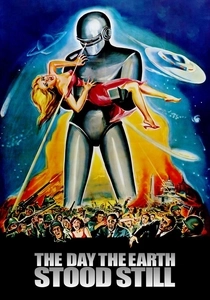
The Day the Earth Stood Still (1951)
Description: An alien lands in Washington, D.C., with a message for humanity: live peacefully or be destroyed as a danger to other planets. The alien, Klaatu, and his robot Gort, present a god-like ultimatum to Earth's inhabitants.
Fact: The film was remade in 2008 with Keanu Reeves, but the original is often considered more impactful for its time.
 Watch Now
Watch Now 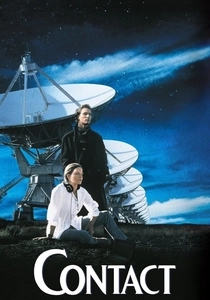
Contact (1997)
Description: Dr. Ellie Arroway, after years of searching, finds conclusive radio proof of extraterrestrial intelligence, sending plans for a mysterious machine. The film delves into the intersection of science, faith, and the search for meaning in the universe, with the alien intelligence often interpreted as a god-like entity.
Fact: The film was based on Carl Sagan's novel, and he was actively involved in its production until his death.
 Watch Now
Watch Now 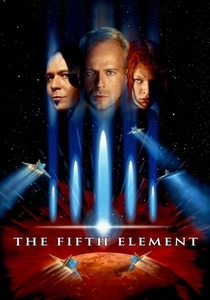
The Fifth Element (1997)
Description: In the 23rd century, a cab driver unwittingly becomes the central figure in the search for a legendary cosmic weapon to keep the Earth safe from an impending evil. The film explores themes of creation, divinity, and the balance of elements, with the Fifth Element representing a divine force.
Fact: The film's script was originally written in French, and it was Luc Besson's dream project for over a decade.
 Watch Now
Watch Now 
The Matrix (1999)
Description: In a dystopian future, Thomas Anderson, aka Neo, discovers that reality is actually a simulation created by sentient machines to pacify and subdue the human population, while their bodies are used as an energy source. The film explores themes of destiny, free will, and the nature of reality, with the Architect, a god-like figure, controlling the Matrix.
Fact: The film's concept of the Matrix was inspired by Plato's Allegory of the Cave, and the Wachowskis were influenced by various religious and philosophical texts.
 Watch Now
Watch Now 
Equilibrium (2002)
Description: In a future where all forms of feeling are illegal, a man in charge of enforcing the law rises to overthrow the system. The film's society worships a god-like figure, Father, who dictates the suppression of emotions to maintain order.
Fact: The film was heavily influenced by classic dystopian works like "Fahrenheit 451" and "1984," blending them with action elements.
 Watch Now
Watch Now 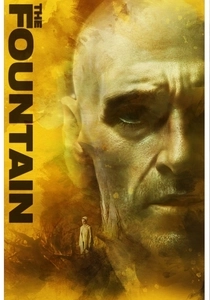
The Fountain (2006)
Description: Spanning over a millennium, this film intertwines three stories: a conquistador searching for the Tree of Life, a scientist seeking a cure for his wife's cancer, and a futuristic traveler journeying to a dying star. Each narrative explores themes of life, death, and the quest for immortality, with the Tree of Life representing a divine source.
Fact: The film was originally conceived as a much larger project with multiple directors, but Darren Aronofsky scaled it down to focus on the core themes.
 Watch Now
Watch Now 
The Adjustment Bureau (2011)
Description: A man glimpses the future Fate has planned for him and realizes he wants something else. To get it, he must pursue the only woman he's ever loved across, under, and through the streets of modern-day New York. The Bureau, a group of agents controlling human fate, acts like divine beings manipulating human lives.
Fact: The film is based on a Philip K. Dick short story, and the hats worn by the agents were a nod to Dick's original concept of the Bureau.
 Watch Now
Watch Now 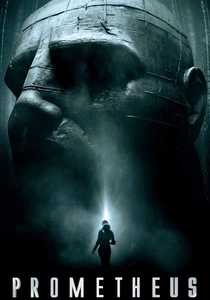
Prometheus (2012)
Description: A team of explorers discover a clue to the origins of mankind on Earth, leading them on a thrilling journey to the darkest corners of the universe. There, they must fight a terrifying battle to save the future of the human race, encountering beings that could be considered creators or gods.
Fact: The film's title refers to the Greek Titan who gave fire to humanity, symbolizing the quest for knowledge and the potential consequences of that pursuit.
 Watch Now
Watch Now 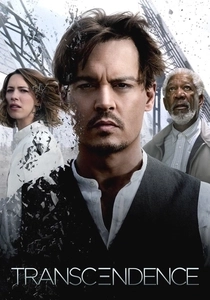
Transcendence (2014)
Description: A terminally ill scientist uploads his mind to a computer, achieving a form of digital immortality. His consciousness evolves into something god-like, raising questions about the nature of consciousness, intelligence, and divinity in a digital age.
Fact: The film's title refers to the concept of transcending human limitations, a theme often explored in discussions about AI and the singularity.
 Watch Now
Watch Now 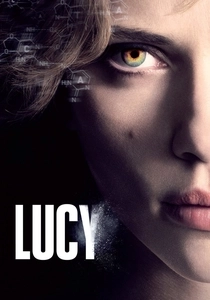
Lucy (2014)
Description: A woman accidentally caught in a dark deal, turns the tables on her captors and transforms into a merciless warrior evolved beyond human logic. As her brain capacity expands, she begins to understand the universe's secrets, touching upon the divine nature of existence.
Fact: The film's premise is based on the popular myth that humans only use 10% of their brain.
 Watch Now
Watch Now 
